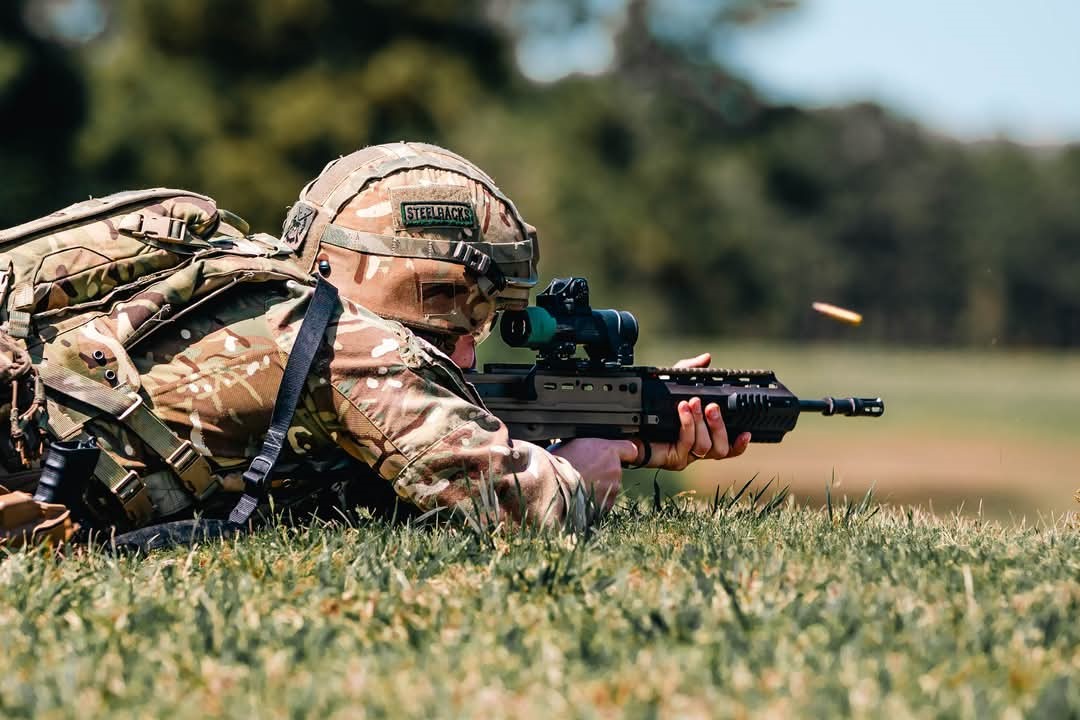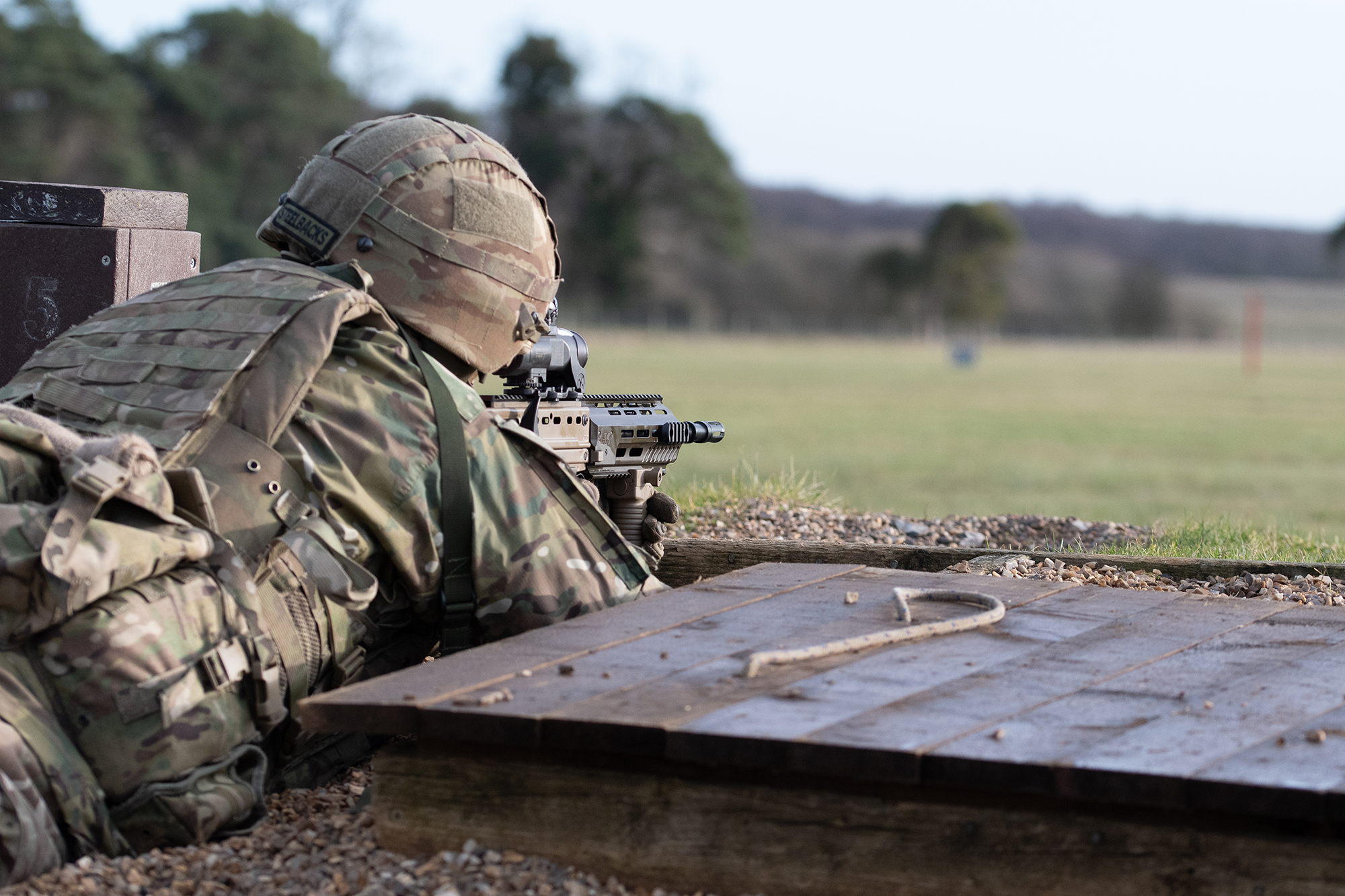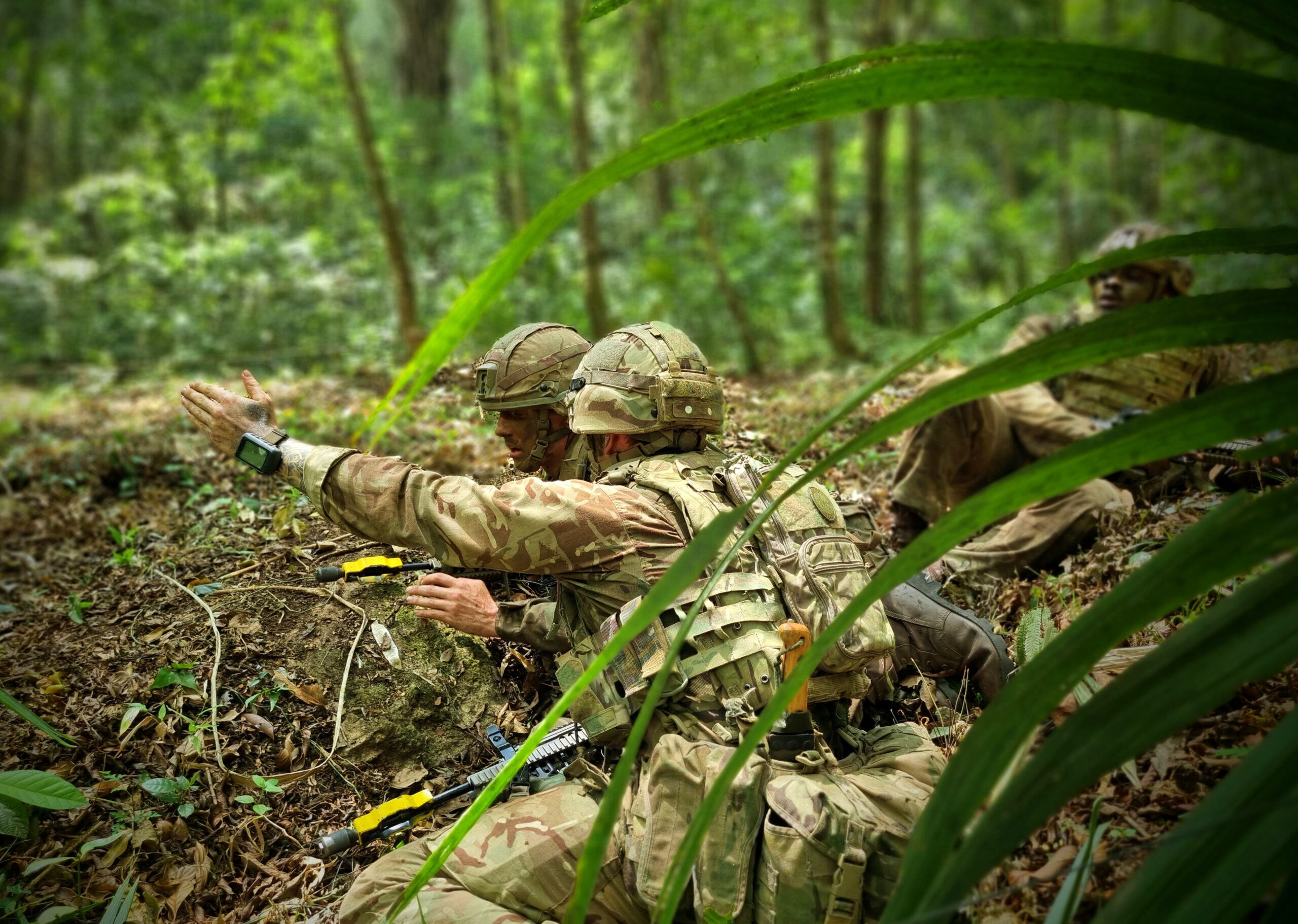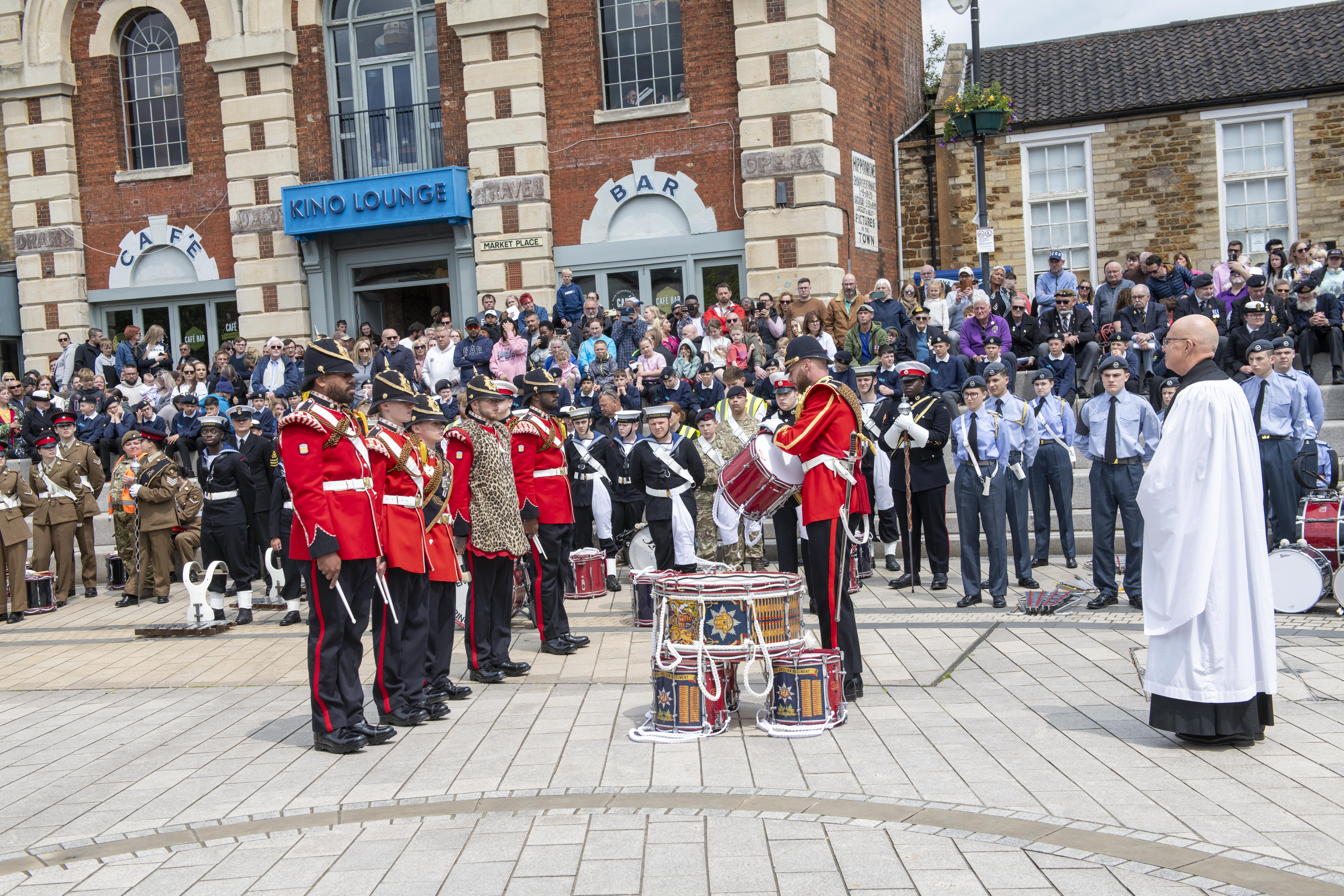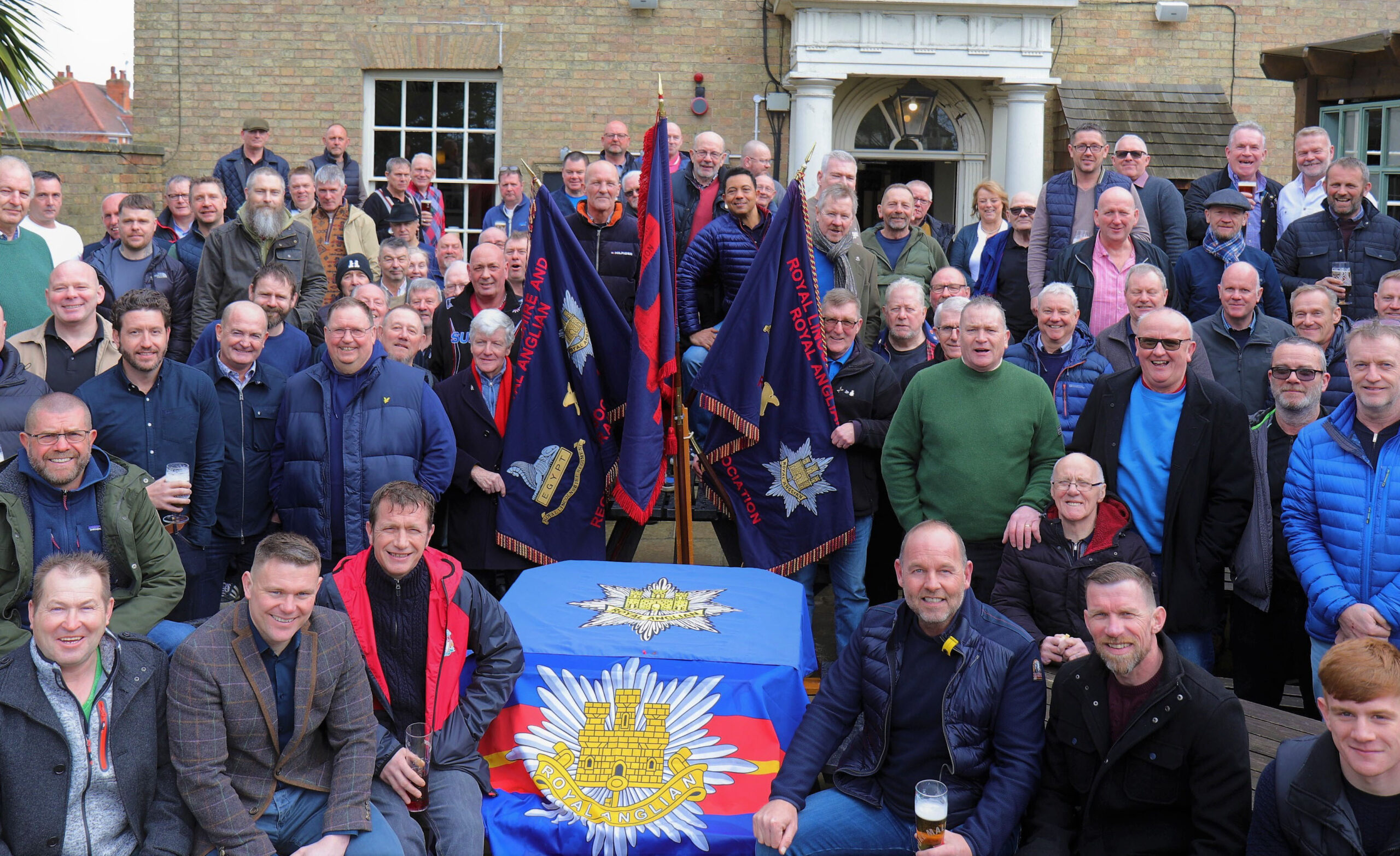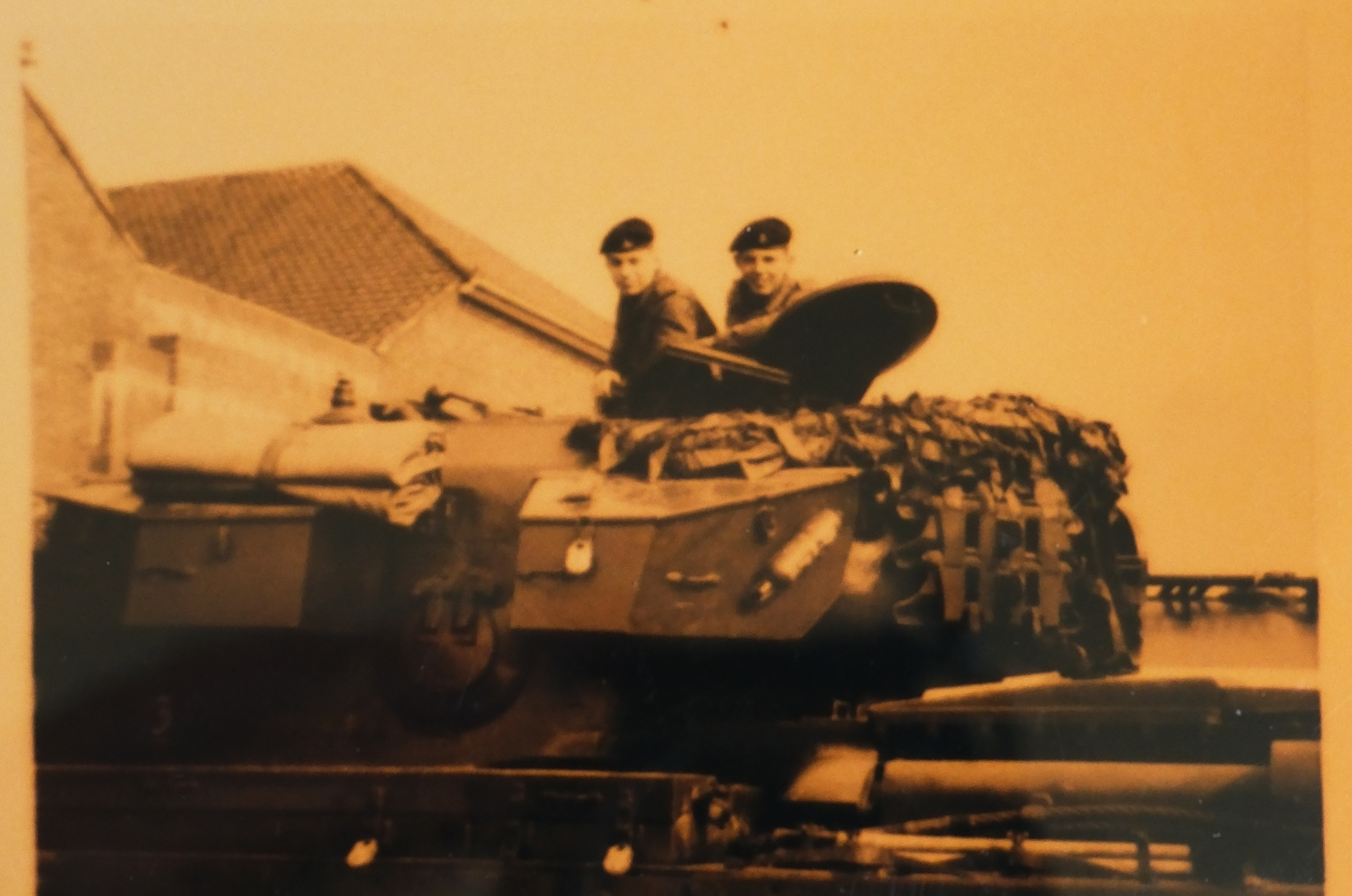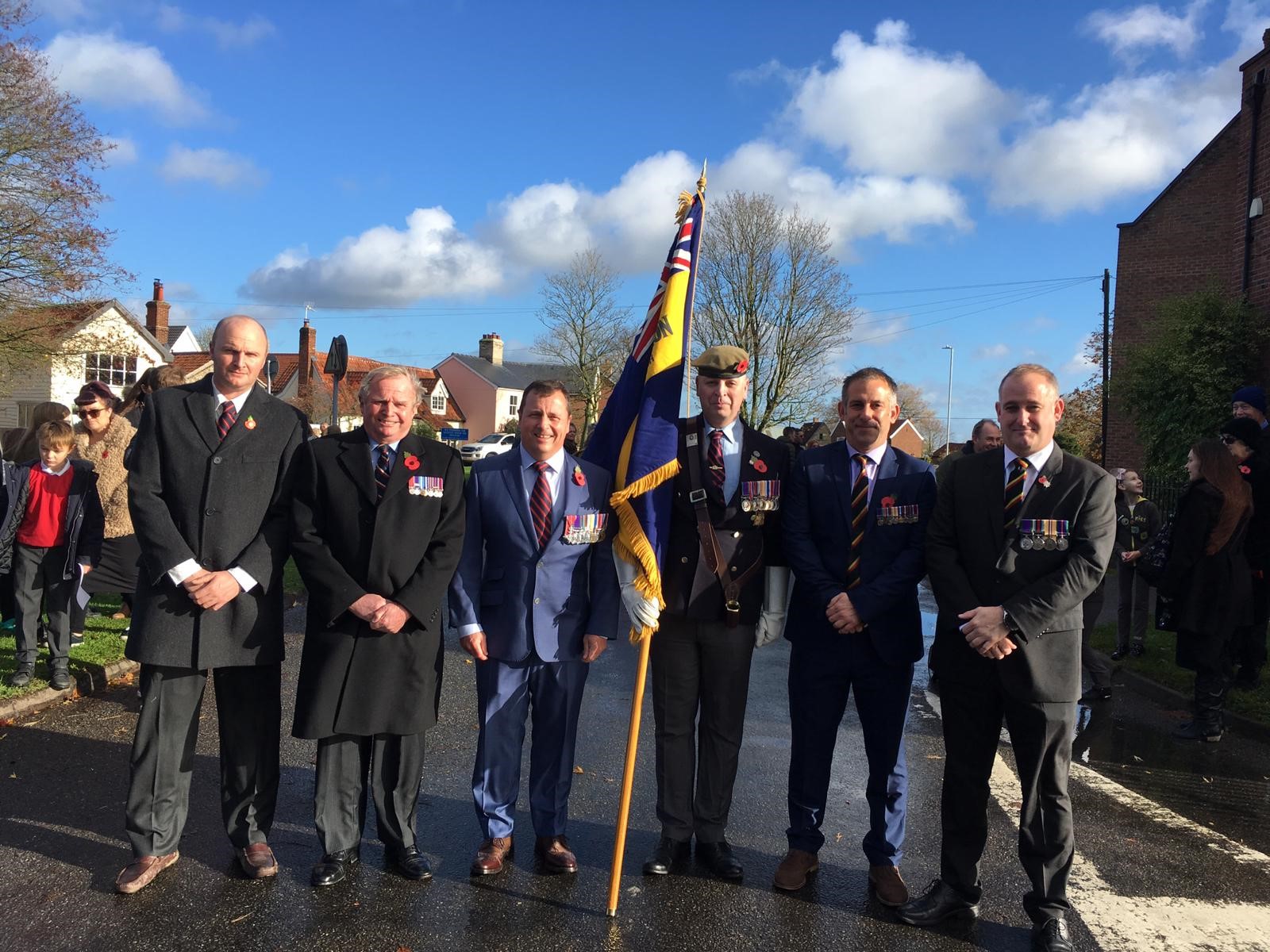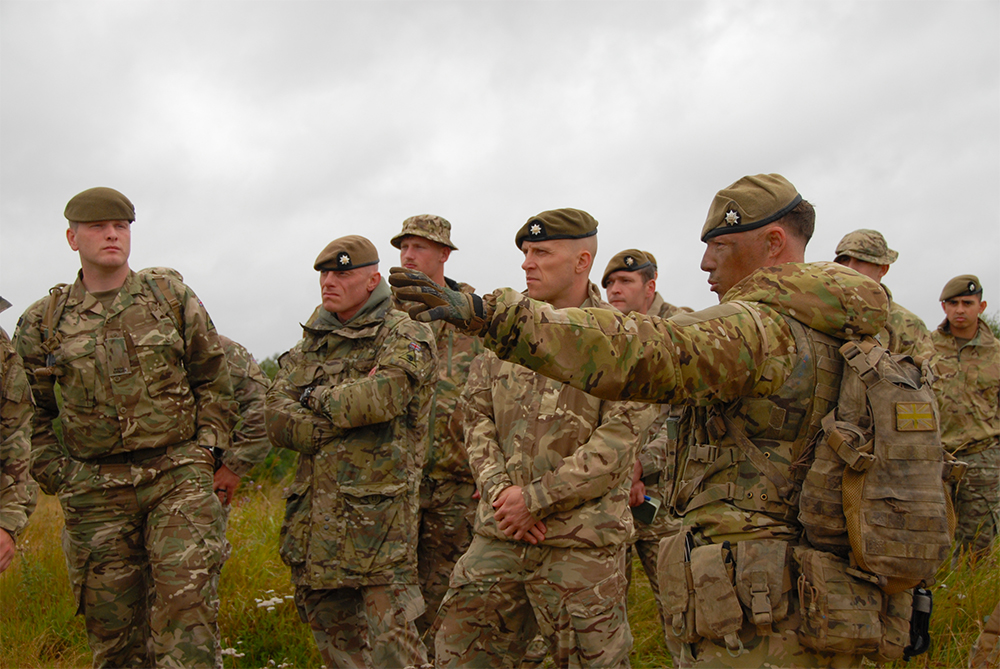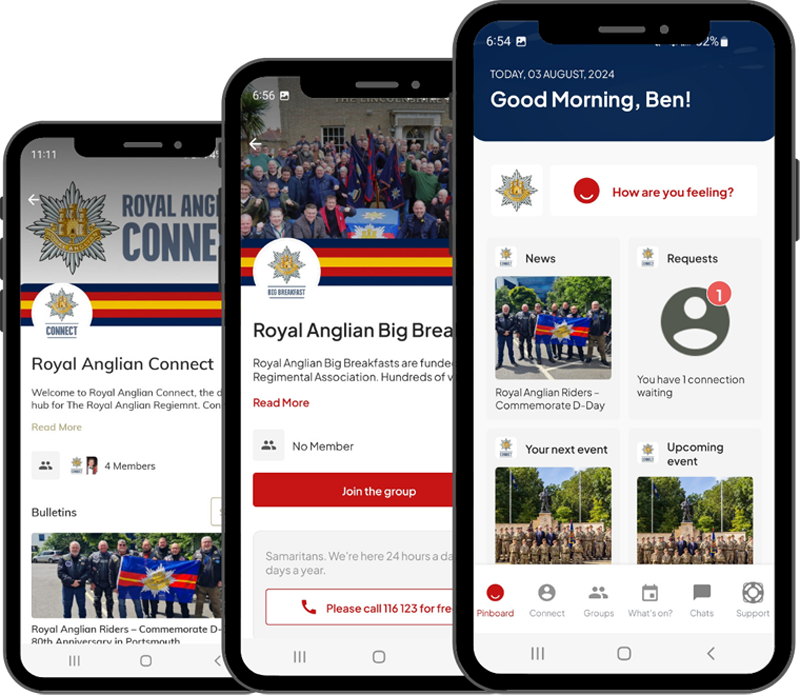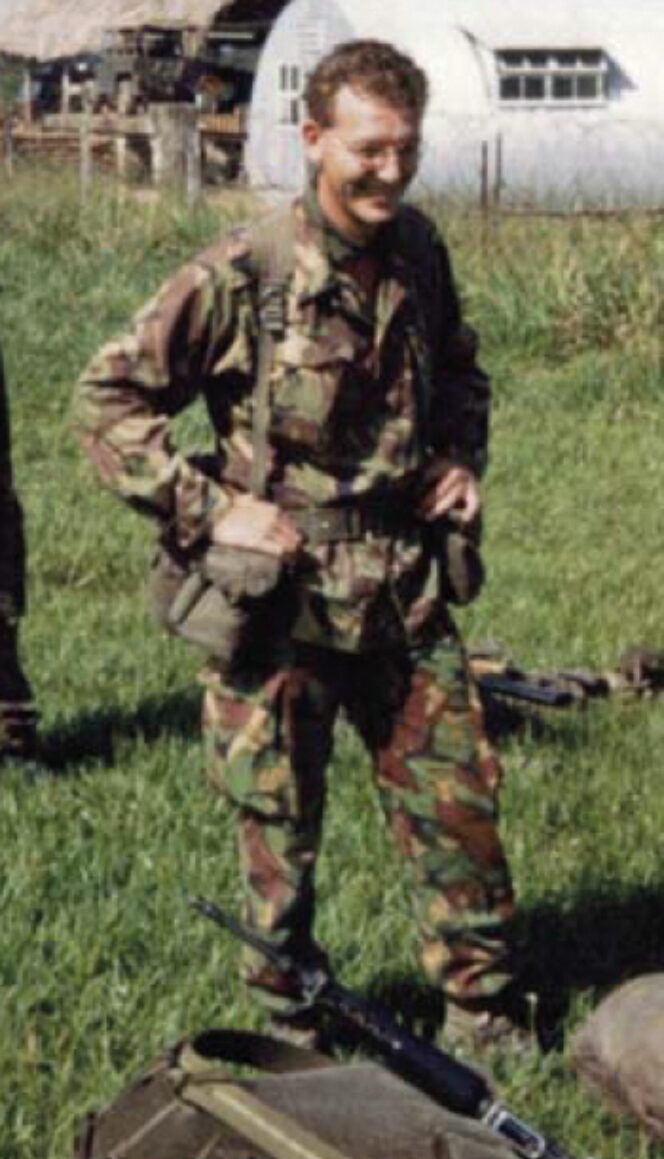
Obituary for Captain Steven Bowns
Steven’s sudden death at home in the early hours of Tuesday 29th March came as a great shock to us all. This obituary cover Steven’s professional life, as a soldier, analyst, historian and educator. It draws on the thoughts and words of the many people who knew Steven as a soldier and a friend.
Steven aspired to be a soldier from a very young age, famously submitting an application while still at primary school. In 1978, Steven went up to Sheffield University to study Geography and Sociology, and in 1979 he was awarded a University Cadetship by the Army. The Colonel of the Regiment who selected him for the Royal Anglian Regiment was Major General Jack Dye, a D Day veteran and an operational soldier of distinction. I mention this not just because Steven admired General Jack, and drew on his wisdom when writing the Regimental History, but because General Jack knew what was needed in an operational infantry officer, and saw it in Steven.
Unlike some who enjoyed the benefits of the cadetship scheme, Steven spent university vacations on attachment with both the 1st and 2nd Battalions, gaining valuable experience in Germany, Berlin and BATUS in Canada. By the time he had completed his degree, attended the short graduate course at Sandhurst, received his Regular Commission in 1981 and joined the 1st Battalion, he `knew what he was on’ and earned an above average report from his Platoon Commanders Battle Course. Steven took soldiering seriously but maintained a wry sense of humour. He was highly intelligent, well read in his profession even at this stage, hard working, determined, tactically capable, an excellent trainer and enjoyed being with soldiers. He was a thinker, and innovative; indeed as another good friend put it `Steven thought too much, at a time when most platoon commanders did not think at all!’ Unconventional and skeptical of the `received wisdom’, he was not tolerant of fools. Initially he had a prickly relationship with some more conventional and older officers. He excelled operationally, in the jungle in Belize and in Northern Ireland. His intelligence and application gained him an `A’ Grade on the complex Nuclear Biological and Chemical Warfare Instructors course, and a distinction on his Milan Anti Tank Course in Spring 1984; his instructor’s comment : `Steven was one of my stand-out students, combining a razor-sharp intellect, an inclination to constructive challenge and a shrewd tactical instinct”. He was a talented trainer; in Northern Ireland, between company operational tours and training his Milan Platoon, with Drum Major Bokenham, he trained the Drums and Machine Gun platoon, to compete in the demanding Army `Match 83’ machine gun competition. They won the Northern Ireland competition in 1985 and in 1986 won the Combined Services Shield, beating the best in the army and the other two services. The Battalion benefitted from that training in 1989 in South Armagh. He also ran the Milan concentration for battalions in the Far East and received high praise. Over two years of demanding Northern Ireland operations he was held in high regard in the Battalion for his reliability, competence, tactical skill and care for his men, not least by his Commanding Officer, a future Chief of Defence Staff. As the Battalion left Londonderry, Steven moved to the School of Infantry to instruct on the Anti-Tank Course, where he thrived and made a major contribution across the infantry. Recommended strongly for promotion to Major, selection for Staff College and Company Command, never the less, in late 1988, Steven decided to make a career change into the world of consultancy. He was a real loss to the Army and our Regiment.
Notwithstanding his formidable intellect and application, Steven was a `Soldier’s Officer’, who really related to those with whom he served and enjoyed great mutual respect. Recent quotes from comrades illustrate this:
“He was a good, solid and dependable officer, with a perpetual smile and a brain as big as the universe…on behalf of the `Tankbusters’ I can assure you that he will be missed with great fondness”; and
“He was my platoon commander whilst serving in Northern Ireland. He was a compassionate and great leader who has had a major impact on my life and always a rock when needed”.
Steven has been a devoted `Viking’ ever since, a loyal supporter of the Regiment, keeping people in touch with each other and spending time with old comrades 40 years on.
On leaving the Army Steven worked with the Cambridge Scientific Consultancy firm Generics from 1990 to 1996, moving to one of the big London firms, PA Consulting, from 1996 to 2001 and from there to the QinetiQ Group, a derivative of the Defence Evaluation and Research Agency from 2001 to 2007. He set up his own company `Technology Futures’, in 2004. These were all `heavy hitting’ commercial and scientifically based organisations, doing serious work in the defence field. Steven was very well thought of by his clients, including the MOD, where he was involved in a large number of important and sensitive project, and establishments like Chatham House. His work was not only technically skilled but also exploited his tactical military knowledge and his analysis of military history, which has been a constant interest throughout his life.
The Royal Anglian Regiment has benefitted greatly from this passion of Steven’s for military history. As an adopted son of Cambridgeshire, Steven was particularly interested in the Cambridgeshire Regiment, a forebear of the Royal Anglian Regiment. Working with his friend and fellow Viking, Nigel Spinks, Steven researched a highlight of the Cambridgeshire’s history, Storming the Schwaben Redoubt during the battle of the Somme on 14 October 1916. It appealed to him as an example of careful analysis of previous failures, thorough planning and training, strong leadership and sound low level tactics leading to decisive success; very Steven! No one who was present at the 90th anniversary commemoration of the battle at Ely Cathedral with the Colonel in Chief, will forget Steven’s briefing on the battle in Ely Kings School in the afternoon. The briefing proceeded to about 2.40pm, when the lights dimmed completely and silence fell until, at 2.46pm, `Zero Hour’ 90 years before, an Infantry whistle sounded loudly, marking the moment when 1/1st Cambridgeshire Regiment had gone `over the top’. It was a masterful `coup de theatre’ by Steven, demonstrating not only his grasp of historical detail , but also the reality of war.
It was therefore no surprise that Steven volunteered and was selected to write `Aden to Afghanistan’ 50 years of The Royal Anglian Regiment 1964-2014. This book, carefully and exhaustively researched, well written and beautifully illustrated, has been a triumph, fully justifying Steven’s focus on operational activity, tactical detail and the `soldier’s perspective’, and something to which all ranks who have served could relate. To complete the record, Steven has been working on a short history of the East Anglian Regiments from the initial amalgamation up to 1964; this has yet to be completed. Throughout all this period Steven has shown loyal support to individuals and the Associations of the Royal Anglian Regiment and the Cambridgeshire Regiment, and been unfailingly generous in his commitment of time, effort and resources to comradeship, welfare and education.
And it is in education that Steven has also made another significant contribution. Drawing on his experience as a practical but also very widely read soldier, and 30 years of management and defence consultancy, Steven has taught `The tools of the Strategist’s Trade’ to the Masters course at Exeter University’s Strategy and Security Institute (SSI). His work there and with other academics was highly valued.
Comments from colleagues at Exeter include:
“He was the most generous, big hearted and jovial person I have had the pleasure to meet….he was so generous to the students with regards to giving his time to speak to them on employability amongst other topics, and I know our Alumni and current cohort will remember him with great fondness”
“The Strategy Masters students always found his teaching sessions incredibly insightful and engaging and Steven would kindly go beyond his remit to talk about careers in consultancy….He was a kind and generous man”
Anthony King, Professor of War Studies at the University of Warwick: “We shared an interest in infantry tactics and as a result of which he gave me a copy of his wonderful book on the Royal Anglians, which is sitting just by my desk as I write. He then helped me hugely in a book I was writing on urban warfare (another shared interest). Steven was a wonderful person. I liked him very much and respected his expertise. He was extremely generous in support of my work, something I will always remember him by. He is a great loss”.
As Lieutenant General Sir Paul Newton, who established and runs the SSI at Exeter, put it:
“ Much in academia is explaining or arguing about one theory or another. Steven knew all the theory but his flair – as at Netheravon when we were both captains – was bringing it to life and applying knowledge in solving real-world problems. Lots of people are invited to lecture. Some are asked twice. Very, very few are invited to teach every course over a span of 8 years! Steven was known (affectionately) by students as ‘Sierra Bravo’. I don’t know if he knew that! I was on a staff ride recce in Belgium with two of the military students and we came to a road junction. No SATNAV signal and map stowed…in the boot. They paused and the Wing Commander said to the Major “Hmm, wicked problem. No obvious solution. What would Sierra Bravo do?” “Few can claim to have served the National interest throughout their military and civilian life in the way Steven demonstrably did. You as a family must be very proud of him”.
We, his friends, colleagues and comrades certainly are; and we will miss him very much.
Based on the eulogy given at the funeral by Maj Gen John Sutherell CB CBE


